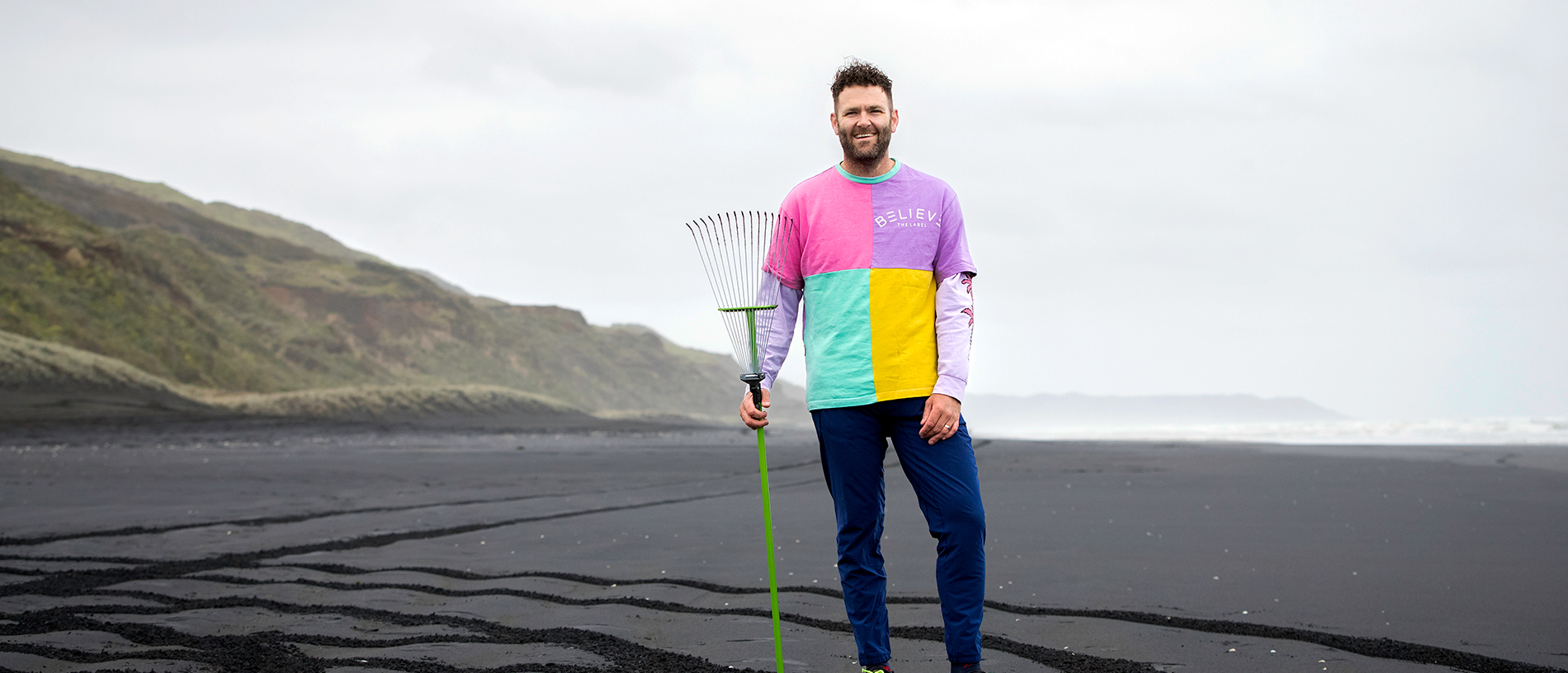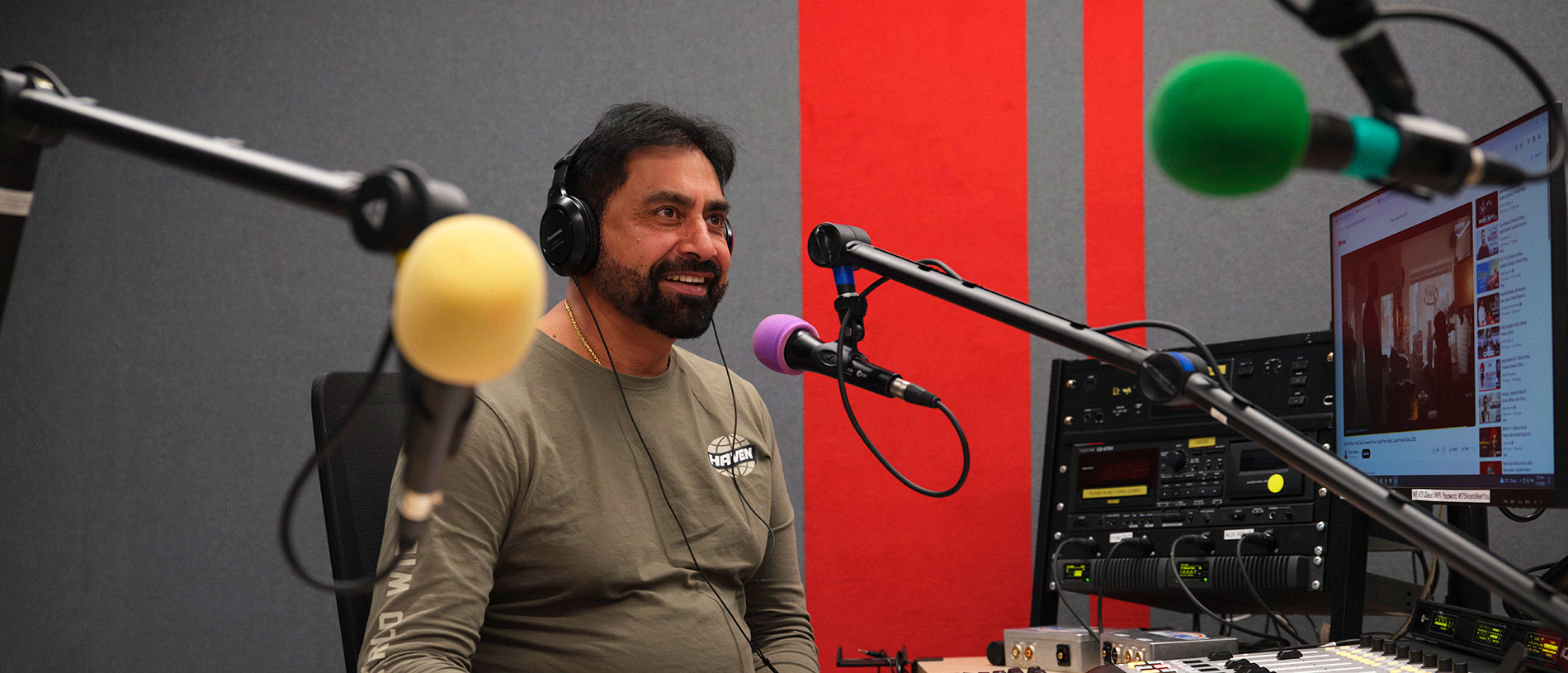
Q&A: Kenrick Smith, sand artist and mindfulness coach
Pāpāmoa-based Kenrick Smith is a mindfulness coach who uses sand-art to channel his energy and create a place of calm.

Across Aotearoa, 12 independently-owned access media stations, from Radio Southland in Invercargill to Auckland's Planet FM, serve their communities by creating content in 54 languages, resulting in more than 240,000 podcast listens every month.
The multitudinous and free library captures the nation's diverse demographics through stories, talk, music and debate, with a philosophy that everyone should, and can, have a space in the media. Shows are live or pre-recorded, then streamed online 'as live' via the station website, Access Media NZ, and popular streaming platforms like Spotify. Content is a literal A-Z of every conceivable subject from Alcoholics Anonymous advice to Zen meditation.
RNZ launched the first station, Wellington Access Radio, in 1981; the first programme was made by members of the Cook Islands (NZ) Society. In 2010, the most recent station launched – Access Radio Taranaki. Community Access Media Alliance is the national body for the 12 stations, while NZ On Air provides operational funding.

“A key part of our strategy is to keep up with the ongoing challenge of meeting the audiences where they are, with what they need,” says Allanah Kalafatelis, Head of Communications and Research at NZ On Air. “Driven by insights and research, we are constantly gathering information about New Zealand audiences to understand what they're consuming, what they want, what they're missing, where they are and what kind of platforms they're on.
“This helps us understand the nuances of ethnicities, age groups, income levels and access to services. Content must be authentic and relatable, and for content to be authentic and relatable, it's got to be made by people with the lived experience of the audience they're trying to reach.”
Natalie Robb, Projects and Funding Coordinator at Radio Hawke's Bay, says the whole premise of community access radio is that everyone gets a voice.

“We go out into Hawke's Bay, to cultural associations and the like, and explain that there's a place for them. We don't say radio shows necessarily anymore, we say podcasts, and we've got a huge youth element now because of it. We've even got a couple of broadcasters in America – Kiwis living on the other side of the world who can offer a different perspective.”
Community access media is also a lifeline in challenging moments. In the aftermath of Cyclone Gabrielle, Radio Hawke's Bay was able to broadcast notices about help for finding family and displaced animals.
“During the cyclone aftermath, it hit home what a difference we can make and because we're on the AM and FM frequency, people could hear us when they couldn't hear anybody else. Now we're involved in creating an emergency broadcast system based on the app we used during Covid, and we're currently liaising with Civil Defense, fire and emergency services as we head into beta testing,” says Natalie Robb.
With today’s technology – programme makers can effectively turn their cell phone into a mobile studio and upload directly to the station – the content landscape is constantly shifting.
Research also indicates that different demographics are using technology and consuming media in different ways.
“New Zealand's demography is rapidly diversifying and what we're seeing is that communities are creating their own media content through their own organisations. A lot of it is streamed and digital, and ‘side stream’ media (as opposed to traditional mainstream media) is beginning to reflect a new New Zealand,” Professor Paul Spoonley at Massey University says.

Planet FM in Auckland broadcasts 100 programmes in more than 20 different languages, from Arabic to Malayalam to Irish, reflecting the diverse nature of New Zealand's most populous city.
“What I love about what we do is that we can fill gaps in the media landscape. So, if you’re not represented in the media, we're a place you can come to make sure your voice is heard,” Jo Holsted, Community Liaison at Planet FM says.
“It’s a way for communities to connect: the concept of access media is 'by, for and about.' Programme makers aren't telling a particular community what they think they need to know; they're sharing what they need to know with each other. It's people speaking to their people directly.
“Mo'ui Lelei Toulekeleka, for example, is a Tongan-language programme on Thursday nights presented by Taani Lavulavu. It recognises that many of the senior Tongan community communicate in their own language. It’s providing very localised but important information to a community who are Aucklanders, but don't necessarily feel included in Auckland in every aspect. That's community access radio at its best.”
Story by Ben Whittacker-Cook for the Summer 2023 issue of AA Directions Magazine. Ben Whittacker-Cook is a freelance writer who regularly contributes to AA Directions Magazine.